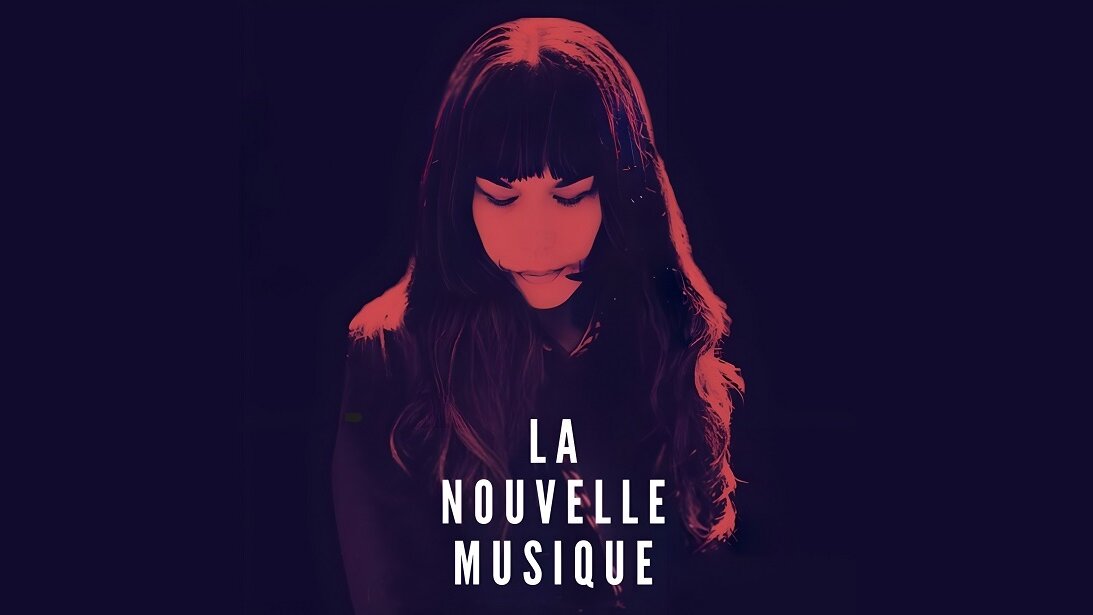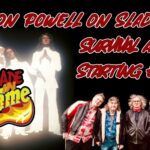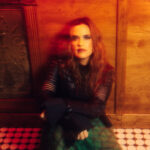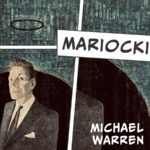
Emerging from with a sound that’s equal parts psych-folk reverie and chamber-pop noir, La Nouvelle Musique create music that feels like it’s drifting in from another era. The duo, made up of composer and performance artist Joanna Beck and frontman Ian de Sylva, record and produce everything themselves, and the results are anything but lo-fi: think string-laced dreamscapes, spectral vocals, and a cinematic sensibility rooted in everything from Scott Walker to Ennio Morricone.
Now releasing their self-titled debut LP on Fruits de Mer, Joanna talks to Jason Barnard about artistic control, creative conflict, and the value of writing “new” music in a world where originality feels like an endangered species.
There’s something immersive, almost ritualistic, about hearing an album on vinyl. Do you think releasing the album on vinyl creates a different experience?
I think so, people when listening to a vinyl album are probably more inclined to listen to the whole record.
It’s a bit like reading a book maybe, in that you take time to choose it and then commit to taking the time to read. I used to spend hours in the library just opening and closing books, reading was an adventure.
Both of you come to this project with rich musical histories. How much of that past did you carry with you into La Nouvelle Musique, and how much did you feel you had to unlearn?
For me, as a classically trained composer, I had to give up a lot of my love for quite heavily overlayed arrangements. I’m not naturally a lyricist; I’ll happily listen to instrumental music for hours on end, for me the voice is just another instrument, another layer in the arrangement. Which is kind of ironic for a singer!
You’ve called yourselves a self-contained unit, writing, recording, producing everything yourselves at Berwick Street Studios. How important is that kind of control to you, and did the ghosts of Ultravox and the Pistols whisper anything useful?
I think it’s just something we do naturally, it wasn’t planned. Ian writes most of the songs which we then arrange, record and produce together. Berwick Street Studios is a lovely studio with a lot of history and it’s inspiring to think about who’s worked there in the past.
What does your creative process actually look like, and how do you make sure the ideas stay clear and the collaboration stays on track?
We usually start with an acoustic version of the song, then sometimes record a demo, before going into the studio. We both play a few instruments and are both singers so it tends to come together quite quickly.
Were you consciously thinking in filmic terms, or does that just happen when your background in scoring meets Ian’s psych rock instincts?
We both love film soundtracks and as I work a lot in theatre scoring comes naturally to me; I also love the orchestration on records by artists such as Scott Walker and Ennio Morricone is also a big influence.
You both clearly trust each other but how do you navigate creative disagreements? Is it all calm discussions, or are there ‘Forest Fire’ moments in the studio?
We don’t always agree on everything but that’s because we both care about the music and want to make the best possible record.
Is there a narrative arc across the record, or are these fragments from different inner films?
I think of our creative process as a kaleidoscope of two people’s timelines and musical influences. There’s no conscious narrative through the record but I think there are probably recurring themes there if you dig deep enough.
With songs like ‘Ballad Of A Broken Wing’, are you writing from the self, or through characters?
I think that song was an attempt to write something in a certain style. I know the song ‘The Windmills of your Mind’ was a bit of an influence there. Lyrically though it’s definitely from the self.
Do you ever find yourselves writing for each other’s voice, imagining what the other will do with a melody or lyric before it’s even begun?
For sure, I think both our voices in a way are quite recognisable and we try and fit the music around them to a certain extent.
What does the stage version of your music look like? Do you try to recreate the album’s mood exactly, or is it a different beast when performed live?
We’ve tried different line ups live but in the end found that for now we prefer playing as a duo with just two voices, a guitar and a bass guitar.
And finally, La Nouvelle Musique means, quite literally, “the new music.” What does new mean to you in an age of algorithmic déjà vu?
I think it’s important to try and mix your influences in an original way. Obviously at this point so much has already been done in popular music, it makes originality very hard, but just by virtue of the fact we’re individuals, if you’re able to express yourself in a genuine heartfelt way then there’s always going to be something in there that’s valid and new.
Further information
Full details at Fruits de Mer
UK pre-orders
International pre-orders




